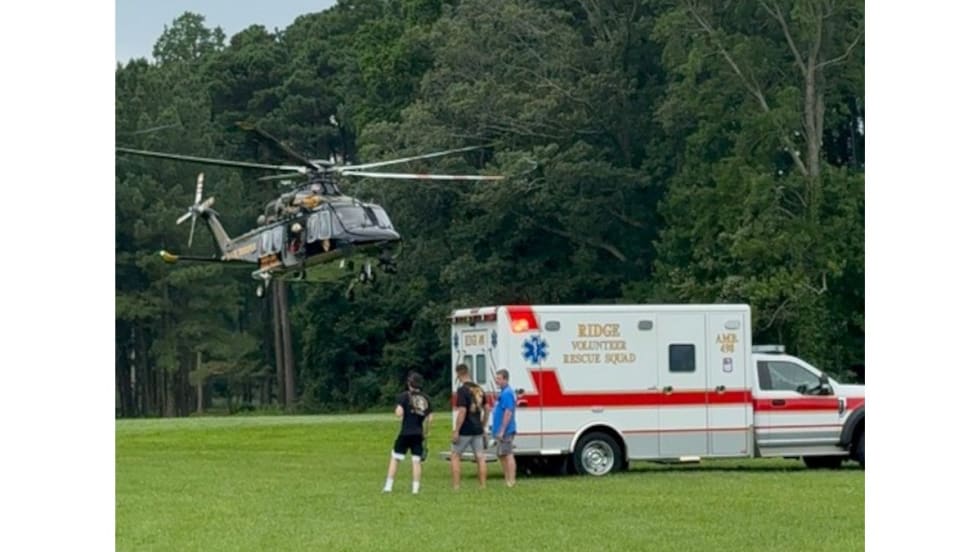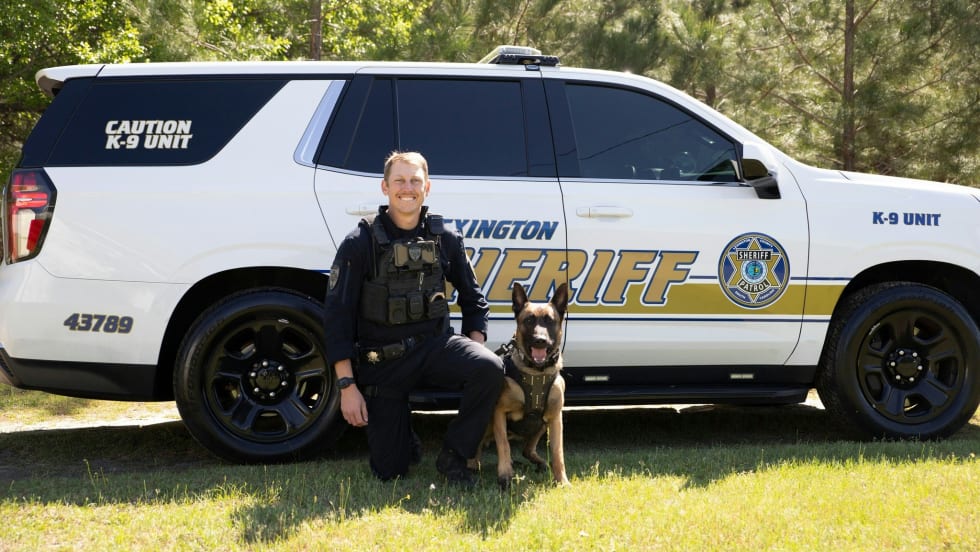The primary objective of having a well-designed K9 record management system (RMS) is to protect officers and the department against civil liability. In addition, a good RMS enables a department to produce court-ready documentation that can be used to help convict suspects involved in arrests where K9 applications were used.
How to Improve K9 Record Keeping
Three tips to help K9 units avoid common record-keeping mistakes.

Detailed and accurate records protect K9s teams when their actions are questioned in court.
IMAGE: Pexels, Ryutaro Tsukata
Reporting data in these systems must be meticulous to avoid problems with reports that either have too little or too much information or data that's not accurate and honest.
“K9 record keeping is as much of a learned skill as the techniques that handlers develop with a leash in their hand,” says Jeff Barrett, the co-author of “Canines in the Courtroom,” and co-founder of the PackTrack K9 records management system. “The quality of the finished product depends on both those who teach it and the efforts put into it by the handlers themselves.”
However, Bob Eden, author of the K9 Supervisors Manual and creator of the K9 Activity Tracking System, commonly known as KATS Platinum, says he often finds agencies’ record keeping lacking.
“Handlers love to work their dogs and put all kinds of effort and time into that but are very weak in putting pen to paper when it comes to documenting what they are doing,” he says. “A lot of times, agencies don’t discover this until they are hit with a lawsuit and realize they lack the information they need to back them up.”
He cites an example where an officer went to court and testified that his dog was capable of a specific skill. However, the court soon discovered there was nothing in their records that showed the dog performed that skill consistently.
“Missing information can create enormous problems,” he says.
A lack of supervisory oversight compounds the problem. “No one is checking to make sure the documentation is being properly recorded,” he says.
Then there’s the lack of detail in the records that are kept, he adds. “Upon review you see that officers are not sure what to document and they don’t want to document that their dog is having any difficulties,” he says. “But it’s OK to say a dog is weak in a particular area and then describe the training plan in place to overcome the issue.”
The officer then can document the different pieces of the training plan as they go through them and, in the end, show that the dog corrected the identified problem.
“Too many officers just put in what they did, such as ‘We did bite work. Dog came off the bite,’” he says. “But they say nothing about how the dog actually performed. They don’t say the dog went down on three articles and recovered all with positive intensity. They don’t include all the data that will support them if they are ever called into court.”
1.Avoid Common Record-Keeping Challenges
Barrett has dedicated his over 30-year career to serving the community. Throughout his time on the streets, he specialized in handling K9 units, specifically focused on drug and firearms detection. In addition to his operational duties, Barrett has also contributed to the legal field as an expert witness in both state and federal courts.
He shares this experience as an expert witness showed him K9 training has advanced faster than record keeping. “In the 80s and 90s as we started keeping records for training and deployments, we believed the less we wrote the less they had to pick on in the courts,” he says. “Just the opposite is true today. We need to know what is important to write, what these records mean, who will read them and why we keep them.”
Barrett cites that the work of handlers with their dogs can help develop probable cause for warrantless searches, but the records about their training and deployments are relied upon to show that these dogs did what they were trained to do in court.
Eden adds the most common issue he sees is a lack of detail in reports. “They think if they don’t document it, when they get Freedom of Information Act (FOIA) request for these records, there’s nothing the other side can use against them,” he says. “That is the most dangerous fallacy out there. If you don’t keep records, you have nothing to protect yourself. But if you're honest about how your dog is doing, any issues you've had, and the work you've done to meet the standards, and then certify the dog accordingly, you've got something to stand on.”
What to write is a common concern, according to Barrett. “Officers always want me to give them concrete examples,” Barrett says. “But that doesn’t equate. You want to write the details of what you did. So, I give them a generalized method of what to write.”
Another common issue is that officers overwrite what they don’t know how to explain, he says.
Barrett explains, “Officers need to be able to write in detail what they have done and understand the process they took to get there. So, if it is a technique they used to get the dog to do bite releases, why did they use those techniques and how do they work? If you are going to write it down, you have to know what it means.”
Barrett also shares officers often overuse phrases that make each report look like a cut and paste from the report before. “Documentation cannot be repetitive and not show progression or some succession of phases,” he says. “The records need to show the reliability of the team.”
From the moment an officer gets a dog, he or she should keep records, Eden adds. The report might say something as simple as ‘I socialized the dog with others on the street’ or ‘I practiced obedience by making the dog sit and wait for his food’ and then detail the dog’s responses and behaviors.
He stresses K9 reporting needs to be as thorough as reports written for patrol or any other law enforcement activity. “They are taught in basic training in the academy how to write reports,” Eden says. “These reports are no different, they are just geared toward K9s.”
2. Step Up Supervisory Oversight
“One of my biggest pet peeves is the supervisor that doesn’t make sure records are kept as they should be,” says Barrett.
The co-founder of PackTrack, a full-featured and flexible K9 records keeping system, says supervisors routinely ask for a feature that enables them to hit “select all” and approve system entries for all K9 teams under their oversight.
“I’ve gotten that request more than once and it makes me about lose my mind,” he says. “If you want to mark all of them as being reviewed at the same time, you know full well you haven’t looked at any of them. You just want to put your name on it and be done with it.”
He stresses a K9 supervisor needs to review the records and ask for improvements as needed. “They need to say, ‘Listen, don’t just write one or two sentences. Give me the details. Share successes and any problems you had and describe how you’re going to fix them,’” he says.
Barrett suggests supervisors establish deadlines for post-training reports. He complains that a lot of managers only review reports monthly.
“If a handler knows that all reports are due on the first of the month, they will start finishing them on the 30th,” he says. “But can you really remember all that you did 30 days ago to complete accurate records? Set it up for reports to be submitted weekly or within so many days of training and use a records management system to alert you when records are late.”
Eden shares when supervisors closely monitor records and keep them in a K9 records management system, the records are available when needed. It's a real hassle for supervisors if a court demands records within 72 hours, especially if they're all over the place and haven't been reviewed.
“That is not the time to find out that your handlers have only been doing the bare minimum,” he says. “Supervisors are just as responsible as handlers to make sure that documentation is there.”
A K9 records management system enables supervisors to pull needed records quickly and run reports on things like the number of bites compared to suspects arrested and by demographic.
“The data tells in real time, how many suspects are bitten compared to how many peacefully surrender,” he says. “That information is important because it protects the officer and the department.”
Eden laments there are still too many agencies using paper-based records, which are wholly inadequate. “Where this ultimately fails is when they get hit with a subpoena and they need the information,” he says. “I had one supervisor come to us after getting hit with a subpoena on a dog bite lawsuit. It took the supervisor, the sergeant, the dog handler, and two clerks to pull the information for the FOIA request. If they had those records available electronically, they could have had them in 5 minutes.”
3. Reap the Rewards of a K9 RMS System
K9 records management is filled with nuances that require a system designed specifically for these teams, according to Barrett and Eden.
Barrett says that when handlers use software like PackTrack or KATS to document training, it “hands them a platform upon which to build and display their reliability as a K9 team.”
Eden agrees, saying, “You need a system that is developed around all the idiosyncrasies of canine behavior. “A K9-specific records management system will document veterinarian records, training, certification and so on.”
For example, a record on a track might share how long the training took place, the weather conditions during training, the distances the dog traveled, the type of environment (urban or rural), etc. “Most police RMS would not contain all of this information which is why a K9-specific RMS designed around the function of each dog is vital,” he says.
Another key thing to pay attention to is the availability of the records once in the system, adds Barrett. When contracts end, some K9 RMS lock departments out of their information, he reveals.
“You should own the information you’ve produced and always have access to your records,” he says. “They should never be purged from the system.”
The system provider should also offer excellent customer service from someone knowledgeable about police K9 work.
“You are going to get hit with subpoenas for this information,” Barrett says. “When you do, you want to give someone there to assist if you need it.”
More Special Units

Ohio’s Statewide Drone First Responder Program to Take Flight
Over the next two years, the Ohio DFR Pilot Program will equip municipalities with advanced drone systems, deliver comprehensive training for first responders, and enable FAA-approved Beyond Visual Line of Sight operations.
Read More →
Louisiana Motor Sergeant Dies from Injuries Suffered in June “Intentional” Crash
A motor officer, Sgt. Caleb Eisworth was on his way to participate in a funeral escort when he was struck by another vehicle.
Read More →
Tennessee Officers Say Man Tried to Detonate IED During Arrest
Inside the bedroom officers found what they believed to be an IED. The officers evacuated the house and called for the Chattanooga Police Bomb Squad and ATF agents.
Read More →
Florida School Officer Dies After On-Duty Medical Emergency
Sergeant Greg Graff was “preparing school leaders for the upcoming year during a safety training program at Clearwater High School,” the school district said.
Read More →
Grenade is Missing from Explosion That Killed 3 LASD Deputies
ATF Special Agent in Charge Kenny Cooper said definitively that only one grenade detonated at the facility on July 18.
Read More →
Los Angeles County Sheriff's Department Names Deputies Lost in Friday Explosion
LASD said Detective Joshua Kelley-Eklund, Detective Victor Lemus, and Detective William Osborn who were all assigned to Special Enforcement Bureau’s Arson Explosives Detail were killed in the incident.
Read More →
Maryland State Police Helicopter Rescues Victim from Overturned Boat in Chesapeake Bay
The Maryland State Police Aviation Command Trooper 7 crew, the MSP helicopter based in California, Maryland, were monitoring the county dispatch radio, overheard the dispatch, and self-launched.
Read More →
3 Los Angeles County Deputies Killed in Explosion Friday Morning
At press time the names of the deputies had not been released. Sheriff Robert Luna said one had served for 19 years, another for 22 years, and another for 33 years.
Read More →
Georgia Sheriff’s Deputy Fired After K-9 Dies in Hot Patrol Vehicle
The vehicle’s air conditioning failed because of a malfunctioning compressor and its heat alarm did not function, according to the sheriff’s office.
Read More →
South Carolina Sheriff’s K-9 Dies After Training Session
Deputy Saunders rushed Sam to the vet as soon as soon he noticed the dog was in distress after the training, the sheriff’s department said.
Read More →

